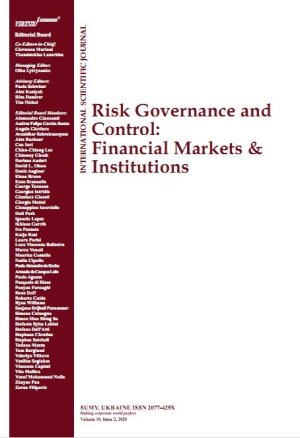
THE IMPACT OF FINANCIAL CONSTRAINTS ON INVENTORY INVESTMENT: EMPIRICAL EVIDENCE FROM JORDAN
Download This Article
This work is licensed under a Creative Commons Attribution-NonCommercial 4.0 International License.
Abstract
This study aims at investigating whether Jordanian industrial firms have a target inventory level, and how fast they move toward it when any deviation exists. In addition, it investigates whether the financial constraints have an impact on inventory investment related to the target level, and the speed of adjustment. Using the panel data for a sample of 50 industrial firms listed on the Amman Stock Exchange (ASE) over the period (2001-2014). The empirical results suggest that Jordanian industrial firms have a target inventory level. However, Jordanian industrial firms adjust their actual inventory holding to their target level slower than their counterparts in developed and developing countries. Moreover, the results show that the financial constraint do affect inversely the adjustment speed, and makes the financially constrained firms reduce their level of inventory beyond the target level by more than others.
Keywords: Inventory Investment, Financial Constraints, Pecking Order Theory, Amman Stock Exchange
How to cite this paper: Gharaibeh, M., Zurigat, Z., & Ananbeh, R. (2016). The impact of financial constraints on inventory investment: Empirical evidence from Jordan. Risk governance & control: financial markets & institutions, 6(4, special issue), 494-502. https://doi.org/10.22495/rgcv6i4siart7



















